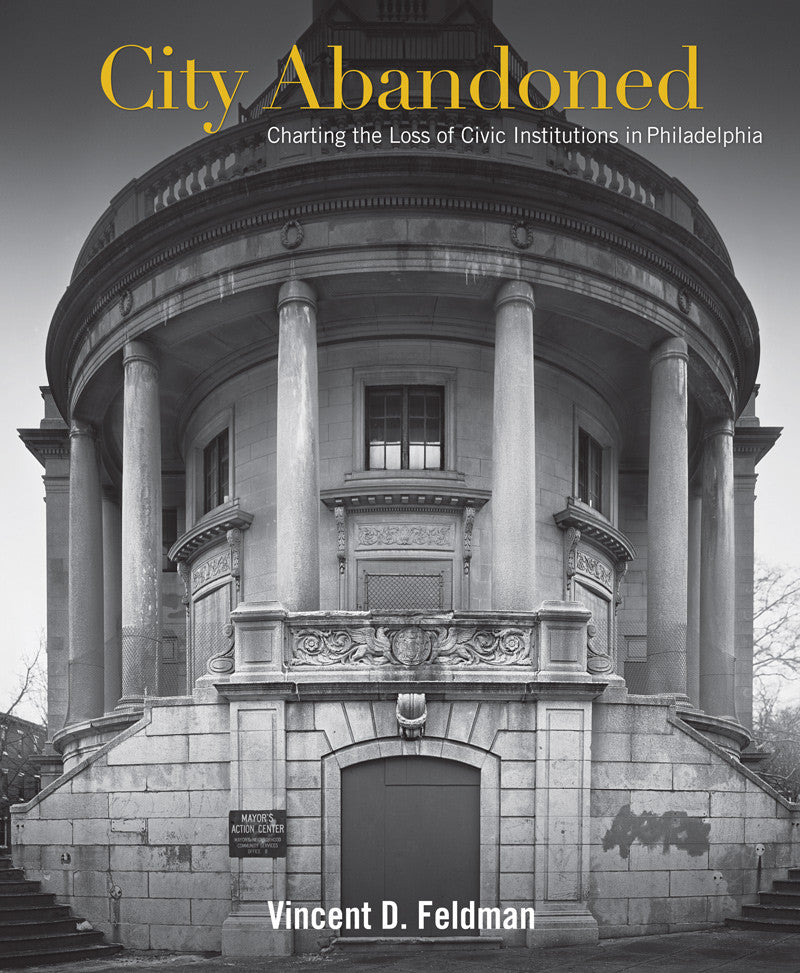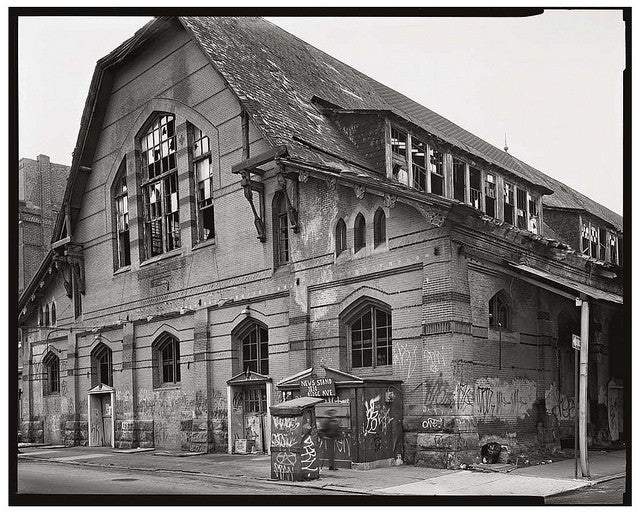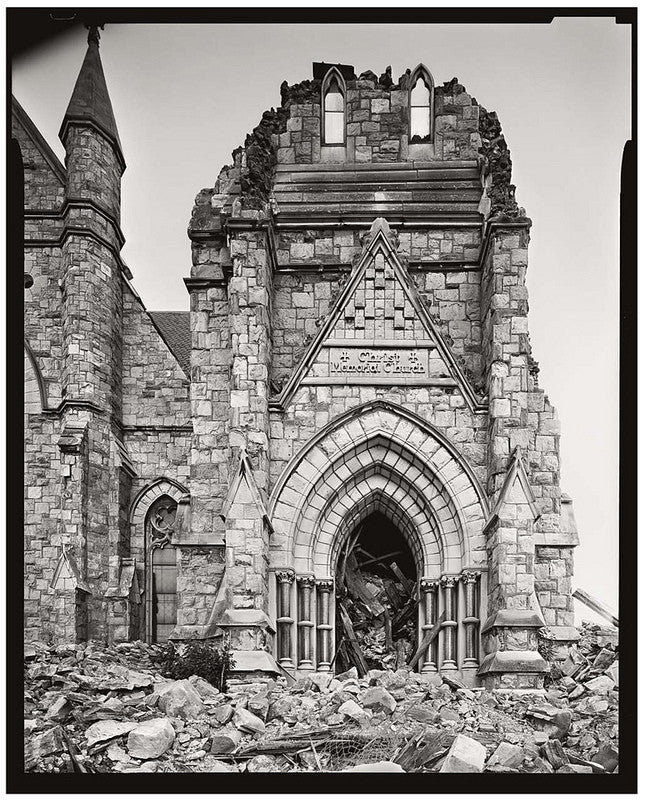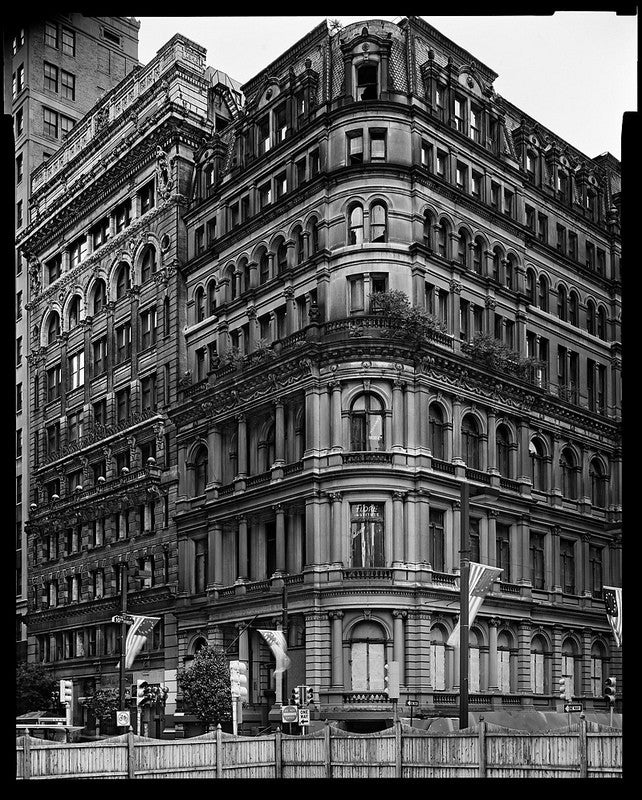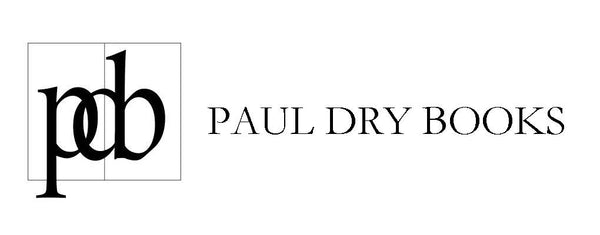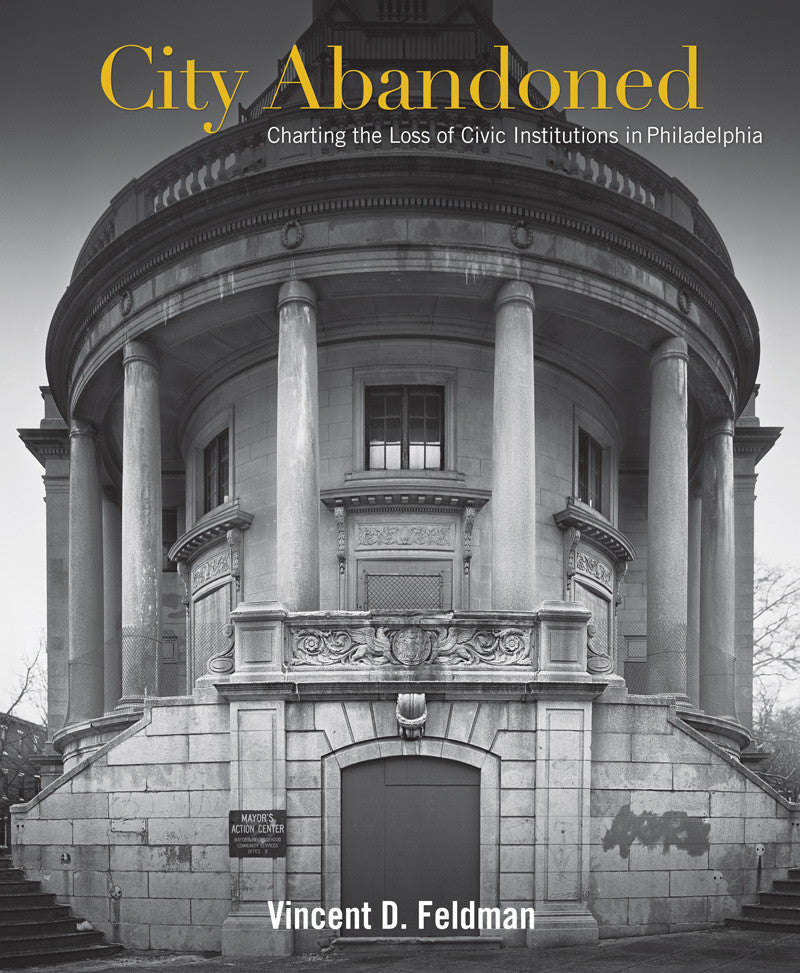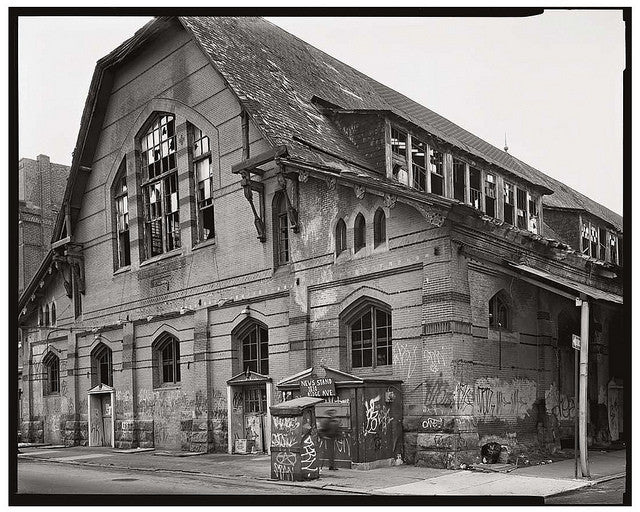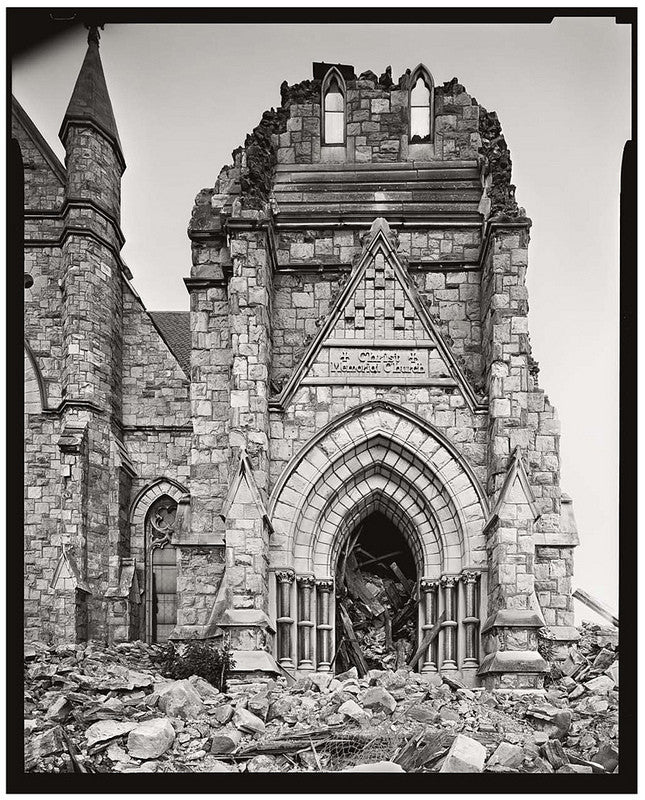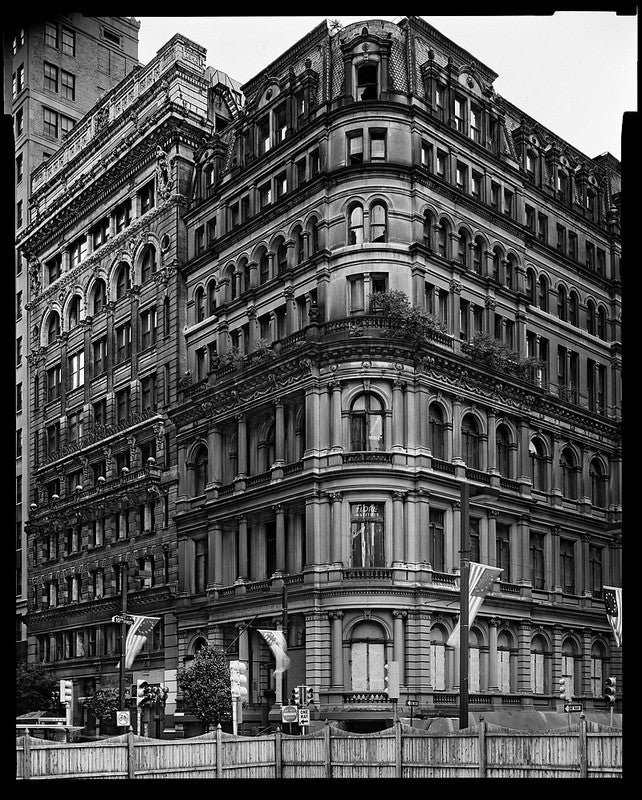City Abandoned
City Abandoned
Vincent D. Feldman
Couldn't load pickup availability
City Abandoned: Charting the Loss of Civic Institutions in Philadelphia / With essays by John Andrew Gallery and Kenneth Finkel / 147-page hardback / 9" x 11" / ISBN 978-1-58988-082-5 / Publication Date: March 2014
Special Offer: You can purchase an autographed book and an 8" by 10" gelatin silver print by the author for $250. (Use the drop-down Format menu.)
"An aesthetic masterpiece—most relevant and revealing for our time."—Robert Venturi
With the photographs in this book, Vincent Feldman offers Philadelphians a testament of who we were, who we are, and who we are likely to become. Some of his subjects have succumbed to neglect or demolition (the Ridge Avenue Farmers' Market, for example); some have been successfully rehabilitated to new uses (the Victory Building); while others remain in limbo in their ruined states—their futures far from secure.
Yet besides recording the current state of the buildings, Feldman's photographs can play an active role in their preservation and renovation. His photos can serve, not only as documentary records, but also as catalysts for the rescue and rehabilitation of some of Philadelphia's most significant and neglected "abandoned" city architecture.
In the Philadelphia Inquirer, Inga Saffron calls City Abandoned a "deeply moving survey of the great civic structures that Philadelphia erected, then neglected...[Vincent] Feldman is not the kind of photographer who shoots and runs. An old-school craftsman, he uses a large-format view camera much like the one Mathew Brady hauled around to record the devastation of the Civil War. Feldman then retreats to the darkroom to print his images on paper, rendering them with such precision that bricks and stones appear to leap from the page in three-dimensional relief."
Read an interview with Vincent at Hidden City Philadelphia: Photographing The Abandoned City
Vincent was interviewed by WHYY's NewsWorks Tonight. Listen to the segment here.
The Wall Street Journal writes that the images of City Abandoned are "a melancholy catalog of such civic failures. In understated compositions that transcend merely local appeal, [Feldman] documents schools, theaters, hotels and churches left to deteriorate even as Philadelphia's downtown has boomed."
Ken Finkel writes about City Abandoned at the Philly History blog.
Joseph A. Gervasi interviewed Vincent Feldman for the Loud! Fast! Philly! project ("An aural history of the Philadelphia hardcore punk scene").
"By focusing on buildings that embody the civic aspirations of decades past and by portraying them in such stark terms, Vincent Feldman has created a body of work that is a vivid reminder of the fragile nature of what we have inherited and the need to remain ever diligent in its preservation."—John Andrew Gallery, "On Vincent Feldman's Philadelphia"
"[Feldman's] images move us to a deeper feeling and understanding of the city, as they pose important questions about our stewardship and the city's future. It's the story of a city on the edge, and we're glad to be along for this freeze-frame journey of photographic brinksmanship."—Kenneth Finkel, "Looking at the Past"
"By inviting you to look carefully at buildings from Philadelphia's past, I hope to promote inquiry about our history and also to inspire thoughtful discussion about what we might do for our future."—Vincent D. Feldman, from his Introduction
Vincent D. Feldman, a lifelong resident of Philadelphia, has been photographing architecture and the urban landscape for three decades. In the early 1990s his photography came to concentrate on the conflicts and questions that often surround historic buildings in Philadelphia. Feldman's photography helps uncover the stories attached to buildings, thus revealing the nature of the societies in which these structures were built—and then neglected.
Feldman received a Pew Fellowship in the Arts in 2001. His work is held in the Philadelphia Museum of Art and in museums and private collections internationally. He is a Master Lecturer in photography at the University of the Arts.
John Andrew Gallery has been a member of Philadelphia's community development and historic preservation community for close to fifty years. From 2002 to 2013, he was Executive Director of the Preservation Alliance for Greater Philadelphia, where he advocated for the city's historic built environment. He is the author of Philadelphia Architecture, A Guide to the City and The Planning of Center City Philadelphia: From William Penn to the Present, and editor of Sacred Sites of Center City, all available from Paul Dry Books.
Kenneth Finkel, a Temple University professor, specializes in American Studies and Public History. He has served as Curator of Prints and Photographs at the Library Company of Philadelphia, Program Officer at the William Penn Foundation, and Executive Director of Arts & Culture Service at WHYY. Finkel honed his historic/civic voice as a regular contributor to the Philadelphia Inquirer's op-ed page in the 1980s, and now writes regularly at the PhillyHistory.org blog. His books include Nineteenth-Century Photography in Philadelphia.
